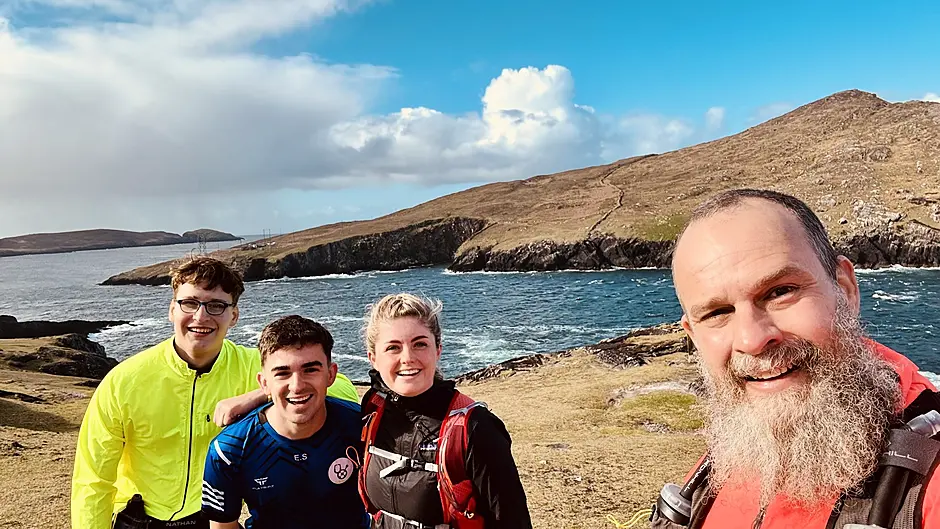DOCTOR Jason van der Velde, consultant in emergency medicine with West Cork Rapid Response (WCRR), will embark on an eight-day, 121k run along the Beara Way from Dursey to Gougane Barra on May 24th, to highlight the work of WCRR and also educate children and adults on the importance of rural safety and community first aid.
‘West Cork Rapid Response as a whole is about supporting existing emergency service workers. To me, it’s all about meitheal. It’s all about working together as a community,’ said Dr Jason.
‘We see where things can and do go wrong and for us it’s about mitigating that. It’s about sharing that knowledge, trying to highlight what it’s like to be in an accident.’
At schools, GAA clubs and community centres, there will be workshops and trainings on rural safety led by WCRR volunteers alongside civil defence and local medics.
Educating people on how to call emergency services efficiently is one of the primary goals of the trainings.
‘We have difficulties in locating the accident in the first place, when it’s out in a really rural area. Yes, we can get to an Eircode, yes we can get to a building. But we lose valuable time in particular, when a farmer is trying to articulate where they are,’ he said. ‘It’s more than just knowing your Eircode; it’s also about knowing the best accessed field when you come to this townland, take this turn, be really descriptive about where you are.’
People often think they are speaking to one operator on the phone, who then dispatches the ambulance.
‘What they don’t realise is that there’s multiple chains and links of people behind that call who are linking in. That ambulance is already on the way to you. The more that you can get information across, the more you work with the controller, for example, the easier it is for the emergency services to dispatch the right resources.’
There will be training on how to call the emergency services throughout the eight days of talks so that the correct resources are dispatched.
‘We’re going to really give them an insight into what happens when you make an emergency call and how to make it more efficient,’ said Dr Jason.
The second part of the training looks at mitigating farm accidents. Machinery accidents are the primary cause of deaths on farms and account for 19% of all serious farm injuries, and 55% of all Irish workplace deaths happen on farms.
‘We’re trying to get across some very, very simple ways to mitigate against machinery entrapments and what to do if somebody gets themselves trapped in a machine,’ he said.
Meanwhile, three years of preparations have gone into this run. ‘We’ve been thinking about doing this since 2022,’ said Dr Jason.
‘It’s no small feat; I mean each individual leg of this ultra is very doable, and we’ve been doing these legs in training. The real challenge is that you’re waking up for eight days in a row to repeat. The challenge is getting up, and having to get back on the trail and get going again. And that’s why we’re hoping local trail runners will come out to support us and run with us for a few kms and try to keep us going.’
Olivia Keating, a patient who Dr Jason saved after she was victim in a life-threatening hit-and-run incident in 2016 will be joining Dr Jason for the full run, as will an intern paramedic and a medical student.
The core team of four will run the whole 121 kilometres, while many other paramedics, doctors and trail runners will join them for some of the distance or for a few days.
The civil defence has been instrumental in spearheading support for the run, while Skibbereen’s Mick Lynch has led the educational side.
Free first aid and farm safety talks will take place in the following communities at 7pm nightly: Saturday May 24th - Allihies Copper Mines Museum; Sunday May 25th - Causkey’s Bar, Eyeries; Tuesday May 27th - the Drill Hall, Bere Island; Wednesday May 28th - Adrigole Caha Centre; Thursday May 29th - Eccles Hotel, Glengarriffe; Friday May 30th - St. Colum’s GAA hall, Kealkil.









